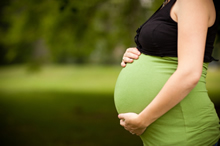
A recent study shows that prescriptions for the antiepileptic drug valproate have not decreased in recent years even though the drug is known to cause severe birth defects and brain damage. A new study indicates that women without epilepsy are four times as likely to be prescribed this drug as are women with epilepsy.
Led by Godfrey P. Oakley, Jr. MD, research professor at Emory's Rollins School of Public Health, a research team analyzed data from the National Hospital and Ambulatory Medical Care Surveys from 1996 to 2007 to examine valproate prescriptions for adolescent girls and adult women aged 14-45 years. Findings from the study concluded that 83 percent of valproate prescriptions were written for women without epilepsy, with 74 percent of those prescribed for psychiatric, non-epilepsy diagnoses and the remaining valproate prescriptions used for conditions such as pain, migraine and other non-epilepsy conditions.
"We were surprised to find that there was no decrease in the number of valproate prescriptions prescribed to women of reproductive-age despite the numerous, less harmful antiepileptic drugs available and the proven evidence of valproate's harmful effects during pregnancy," says Oakley who is also the director of Emory's Center for Spina Bifida Research, Prevention, and Policy.
The complete study is published in the June 3, 2013 edition of the Birth Defects Research Part A—Clinical and Molecular Teratology journal.
"We believe that sharply reducing the use of valproate for reproductive-age women is an important step in preventing birth defects," explains Oakley.
